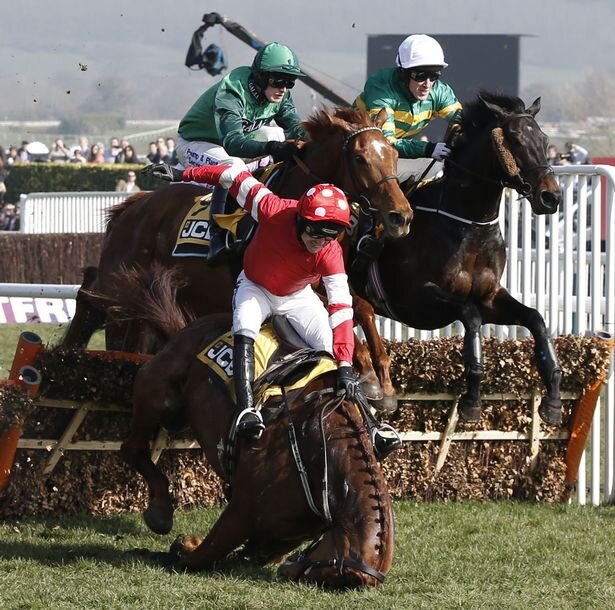
Horse Racing
The following was edited from material written by our friends in the National Animal Rights Association
15,000 horses are bred every year, between the Republic of Ireland and the UK, for the racing industry.
Of the thousands bred every year for this cruel industry, only a third of these horses make it on to become racers.
Most are killed if they are of no use to the industry, and hundreds of horses that do actually become racers die, or are killed, during the course of a race.
Even successful race horses are slaughtered, when they are no longer profitable to their “owners”.
Most horses start ‘flat’ racing, which is sprinting along a course without fences, at the age of 2. Horses don’t reach full physical maturity until they are about 5 years of age. Which means that racing 2 year olds places enormous pressure on their underdeveloped limbs.
The Irish government continues to give the horse racing industry 67 million of tax-payers money every year.
The extent of stress suffered by genetically manipulated “performance” horses can be gauged by the incidence of a condition called “exercise induced pulmonary haemorrhage” (EIPH) which results in bleeding from the lungs during strenuous exercise. Some horses bleed severely and regularly, with blood leaking from their nostrils. Fifty-five per cent of “flat race” horses suffer the condition, increasing to 82% in horses aged 4 years and older.
Horses that make it to the age of 6 are “progressed” to chasing, first in “novice races”. These can cause an intolerably high percentage of falls, injuries and fatalities.
Those who survive serious injury can be expected to run at least a dozen races a year until they reach the age of 13. Around 5,000 raced horses end their careers every year. Many are owned by businesses or individuals who do not wish to provide for horses who can no longer provide a day’s fun or the possibility of financial recompense. Concern for their care is non-existent.
Jockeys use a whip to make horses run faster or to keep them running when they tire.
Frequently, jockeys receive a ban from riding for a day or two when they have used the whip excessively. Yet even when a ban is imposed, the race positions are not changed when a whipped horse has run.
What happens to “retired” race horses? Or the many who just “aren’t good enough” to race? Most are sent to horse slaughterhouses, where they are murdered for the “meat” trade.
Others are exported to other countries to be killed—a trade which has been operating on an on-going basis for years. It operates with no controls and involves the systematic export of live horses from Ireland in a way that is cruel and ignores EU Legislation.
Some even end up in laboratories, where they are used in live experiments.




